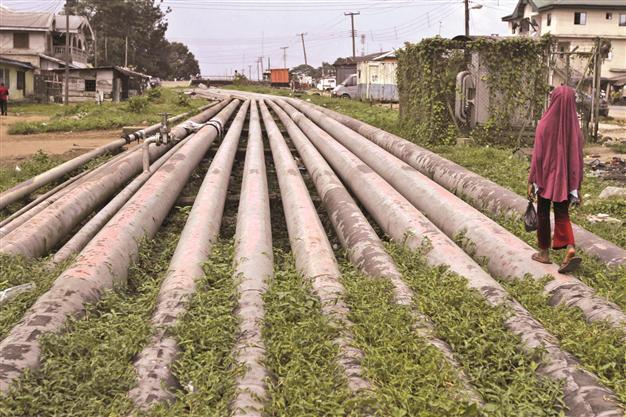No Turk-Israeli project ‘without Erdoğan’s OK’
ISTANBUL

Unless Israel meets Turkey’s political conditions, no energy deal will be made, the energy minister says. REUTERS photo
Turkey will not agree to an energy project with Israel without the approval of the Turkish prime minister, Energy Minister Taner Yıldız has said, commenting on an Israeli offer to lay an undersea natural gas pipeline to Turkey for export to Europe.“We can’t act like nothing ever happened. We won’t operate a project with Israel without seeing that the conditions put by the prime minister are met [first],” Yıldız told private broadcaster CNBC-e.
Israel has offered to lay an undersea natural gas pipeline to Turkey’s south coast in order to sell energy to Europe.The Leviathan field, Israel’s biggest, contains an estimated 425 billion cubic meters of natural gas, and the field will produce enough gas to supply all of Israel’s needs for the coming years. As such, the country is looking to export the excess gas.
Turkey’s main objective is to benefit from its geographical advantages and cooperate with its neighbors on energy, but Israel knows Turkey’s sore points, the minister said. “Unless the political conditions mature, beginning these kinds of projects is risky.”
Turkey has long demanded that Israel apologize for the 2010 raid on the Mavi Marmara aid flotilla, pay compensation to the families of nine Turks who were killed in the attack, as well as lift a blockade on Gaza.
Many, including Israeli newspapers, have suggested Turkey’s Zorlu Energy Group could become involved in the project. The company said it has been an important energy player in Israel and has shares in several power plants in the country, adding that the idea of laying an undersea pipeline between the two countries had been broached several times in business meetings but official offer has been made. In Israel, Zorlu owns a 25 percent stake in Dorad Energy, which is developing a power plant in Ashkelon. It also has a 42 percent interest in cogeneration projects at the Ashdod and Ramat Negev plants.
















